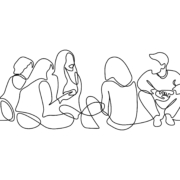Postsecondary CTE for students with intellectual disabilities
Career and technical education (CTE) prepares learners for a wide range of industries and occupations. A pressing need for students with intellectual disabilities (ID) is access to career preparation. Until recently, it was often difficult for students with intellectual disabilities to access postsecondary education. The Higher Education Opportunity Act (HEOA, 2008) established comprehensive transition and postsecondary programs to support their participation in inclusive postsecondary education (IPSE). IPSE programs offer students with ID a variety of experiences and opportunities to gain the skills and career-specific credentials needed for positive employment outcomes.
Inclusive postsecondary education may include:
- Regular enrollment in credit-bearing courses with nondisabled peers
- Auditing or participating in courses for which students do not receive regular credit
- Enrollment in noncredit-bearing, non-degree courses
- Participation in internships or work-based training
Currently, 11 technical and state col.leges have established programs that offer CTE credentials in Florida. The majority of these are programs established through the Florida Postsecondary Comprehensive Transition Program (FPCTP) Act (FS 1004-6495), signed into law on Jan. 21, 2016. This legislation was the first in Florida to provide a structure and financial support for expanding the HEOA’s inclusion of IPSE programs. It also helped establish a center to support statewide coordination and includes career centers as eligible institutions. Further, the FPCTP Act established coherent pathways to help students with ID achieve career goals:
- Developing Florida Postsecondary Comprehensive Transition Programs
- Funding scholarships for students to attend approved programs
- Funding initial and continuing grants to approved programs
The application to become an FPCTP requires programs to outline the program length; inclusive practices related to curriculum, assessment, and advising structure; internships and employment opportunities, which must support students with intellectual disabilities who seek to continue their education; and independent living instruction, including how to find opportunities to earn industry certifications. Program requirements include the student exit with a meaningful credential that leads to employment. These credentials may include an industry certification, a micro-credential and/or a badge.
CTE stakeholders collaborate to support learners with ID.
Creating pathways to IPSE depends upon collaborative efforts of local, state, and national agencies. Raynor et al., for the Journal of Disability Policy Studies, pointed out that “the intractable problem of low employment for… [students with ID] cannot be solved by one agency alone…” (p. 307). Local and state agencies must work together to streamline a path to employment for youth with disabilities. For example, collaborative workgroups have been used to great effect in improving employment outcomes for students with disabilities (Laszlo, Henry, Goldsberry, & Lapine, 2012).
The Think College Inclusive Higher Education Network is a national technical assistance and dissemination center focused on expanding IPSE for students with ID through developing state and regional infrastructure. They raise awareness about IPSE, develop training and technical assistance and support work to address existing gaps in services. Of note, they partnered with the Florida Center for Students with Unique Abilities to develop a collaborative workgroup focused on expanding access to CTE for students with ID.
Expanding access to CTE for students with intellectual disabilities
The CTE Collaborative Workgroup brings together experts in their fields to assess current practices, gather existing resources, and develop new resources to support enhanced employment outcomes for students with intellectual disabilities. Further, the workgroup will conduct outreach to existing stakeholders, engaging them to build upon existing practices and develop new ones. They offer targeted dissemination avenues for currently under-resourced areas of need and critical partners for IPSE programs and students. This work is key as they share resources, highlight promising practices and seek to replicate successful activities. Regular communication and support can make educators feel more involved and invested. And this work has the potential to engage CTE more effectively in helping students with ID earn meaningful credentials and attain competitive, integrated employment.
W. Drew Andrews, Ed.D., is the assistant director and technical assistance coordinator at the Florida Center for Students with Unique Abilities. He supports the development of inclusive postsecondary education programs and coordinates continuous quality improvement efforts for established programs.
L. Danielle Roberts-Dahm, Ph.D., is the project coordinator of the Think College Inclusive Higher Education Network. She leads project implementation, including regional partnership development, training and technical assistance, and dissemination.





